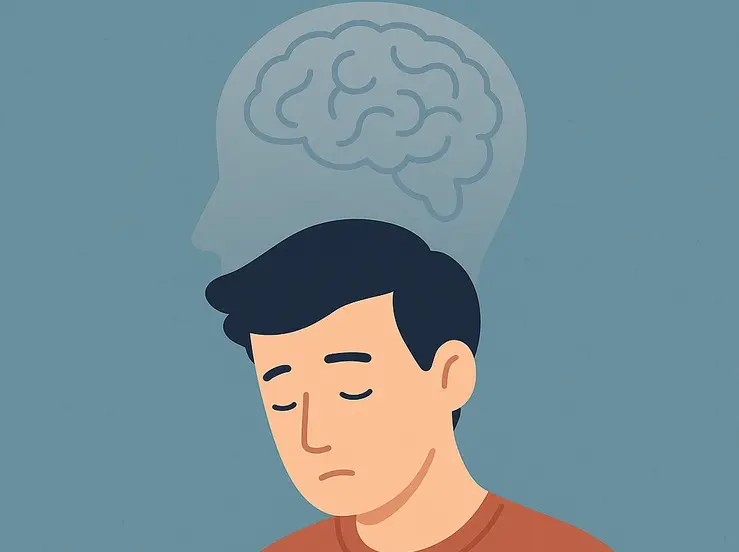The Hidden Cost of AI Dependency: How Artificial Intelligence Is Changing Our Brain Function
New research from MIT reveals a concerning trend: overreliance on artificial intelligence tools like ChatGPT may significantly reduce brain activity and critical cognitive functions. As AI becomes increasingly integrated into our daily lives, understanding these neurological impacts is crucial for maintaining our cognitive abilities in the digital age.
Key Findings from MIT’s Groundbreaking Study
MIT researchers conducted a comprehensive study with over 50 college students, dividing them into three distinct groups for essay writing tasks. The first group relied solely on their knowledge, the second used Google’s search engine, and the third utilized OpenAI’s ChatGPT.
In a second round, researchers switched participants between groups and made a startling discovery: students who originally used ChatGPT showed the lowest brain engagement when required to work without AI assistance.
“We measured neural connectivity—essentially who is talking to who in the brain and how much talking is happening,” explains Natalia Kuzmina, lead author of the study and research scientist at MIT Media Lab’s Fluid Interfaces Group. “When you only use your brain, there’s a lot of chatter happening because you need to remember things from your experiences. But when using ChatGPT, there’s much less of this chatter.”
The Neurological Impact of AI Tools
The study utilized advanced brain monitoring techniques to measure neural connectivity—the communication between different regions of the brain. This connectivity is crucial for:
- Critical thinking and problem-solving
- Memory formation and recall
- Creative thinking and innovation
- Knowledge integration and synthesis
When participants used ChatGPT, researchers observed significant reductions in these neural connections, suggesting that the brain was essentially “outsourcing” cognitive functions to the AI system rather than engaging in the mental work itself.
Long-Term Implications for Cognitive Development
The “Use It or Lose It” Principle
The human brain operates on a fundamental “use it or lose it” principle—neural pathways that aren’t regularly activated tend to weaken over time. This raises serious questions about the long-term cognitive effects of AI dependency, particularly for developing brains.
“We have already seen the iPad generation, the social media generation. AI is not going to be better unless we intentionally make it better,” warns Kuzmina. This suggests that without thoughtful implementation and boundaries, AI tools could potentially contribute to cognitive decline rather than enhancement.
Content Homogeneity and Critical Thinking
Another concerning finding from the study was the homogeneity of AI-generated content. Essays produced with ChatGPT used remarkably similar language patterns and structures, lacking the diversity and originality found in human-written work.
“Do we want to end up with average everything everywhere all at once?” Kuzmina asks, highlighting concerns about AI’s potential to standardize thinking and reduce cognitive diversity.
Educational Implications and Recommendations
Finding the Right Balance
The study’s findings don’t suggest eliminating AI tools from education entirely. Instead, they point to the importance of thoughtful implementation:
- Timing matters: Introducing AI tools after students have developed foundational knowledge and skills appears less detrimental to neural connectivity
- Intentional usage: Using AI as a collaborative tool rather than a replacement for thinking
- Balanced approach: Combining AI-assisted and independent work to maintain cognitive function
Recommendations for Educators and Parents
- Establish clear boundaries for when AI tools are appropriate and when independent thinking is required
- Teach critical evaluation skills to help students assess AI-generated content
- Promote activities that strengthen neural connectivity through challenging cognitive tasks
- Monitor and adjust AI usage based on individual learning needs and developmental stages
Hiring?
Post jobs for free with WhatJobs – Find Cognitively Skilled Talent for Your AI-Enhanced Workplace.
Whether you’re scaling intelligent systems or driving innovation through automation, WhatJobs connects you with forward-thinking professionals ready to thrive in AI-powered environments.
Post a Job for FreeWorkplace Implications: Maintaining Cognitive Fitness
The findings extend beyond educational settings to professional environments where AI tools are increasingly common. Workers who become overly dependent on AI systems may experience similar reductions in neural connectivity, potentially affecting their ability to think critically and solve problems independently.
Strategies for Cognitive Preservation in the Workplace
- Scheduled AI-free work periods to maintain independent thinking skills
- Cognitive cross-training by engaging in varied mental challenges
- Deliberate practice of skills that AI typically handles to preserve neural pathways
- Mindful technology use with awareness of potential cognitive impacts
The Future of Human-AI Collaboration
Despite these concerns, the research doesn’t suggest abandoning AI tools altogether. Instead, it points toward developing more thoughtful approaches to human-AI collaboration that preserve and enhance our cognitive abilities rather than diminish them.
Designing AI Systems for Cognitive Enhancement
Future AI systems could be designed specifically to stimulate rather than replace human thinking by:
- Prompting deeper reflection rather than providing immediate answers
- Encouraging users to articulate their reasoning before offering assistance
- Adapting to individual cognitive styles and learning needs
- Gradually increasing cognitive demands as users develop skills
Maintaining Creativity and Original Thinking
One of the most significant concerns highlighted in the study was the potential loss of creative thinking and originality. When participants used ChatGPT, their essays became notably homogeneous, lacking the distinctive perspectives and approaches that characterize human creativity.
Preserving the Human Creative Edge
- Engage in regular creative exercises without technological assistance
- Practice divergent thinking by generating multiple solutions to problems
- Seek diverse influences beyond algorithmically curated content
- Collaborate with other humans to maintain social cognitive functions
Finding the Right Balance in the AI Era
The MIT study serves as an important reminder that while AI tools offer tremendous benefits, they also come with potential cognitive costs that must be carefully managed. The key lies in finding the right balance—using AI to enhance our capabilities while preserving the neural connectivity that makes human thinking unique.
Questions for Reflection
- How dependent have you become on AI tools for tasks you once performed independently?
- What cognitive skills do you want to maintain regardless of AI advancement?
- How can you incorporate “cognitive exercise” into your daily routine?
- What boundaries might you establish for your own AI usage?
By approaching AI as a tool rather than a replacement for human thinking, we can harness its benefits while preserving the neural connectivity that underlies our most valuable cognitive abilities.
FAQ: AI and Cognitive Function
How does AI use affect brain activity according to the MIT study?
The MIT study found that overreliance on AI tools like ChatGPT significantly reduces neural connectivity in the brain. When participants used ChatGPT for writing tasks, researchers observed less “chatter” between brain regions compared to those who relied on their own knowledge. This reduction in brain activity suggests that the brain essentially outsources cognitive functions to AI rather than engaging in the mental work itself, potentially weakening critical neural pathways over time.
Can AI dependency permanently affect cognitive abilities?
While the MIT study doesn’t conclusively prove permanent cognitive effects, it raises serious concerns based on the “use it or lose it” principle of brain function. Neural pathways that aren’t regularly activated tend to weaken over time. Consistent overreliance on AI for tasks that would normally require critical thinking, memory recall, and creative problem-solving could potentially lead to diminished cognitive abilities in these areas. However, more longitudinal research is needed to determine the extent and permanence of these effects.
What cognitive functions are most at risk from AI overreliance?
According to the MIT research, the cognitive functions most at risk from AI overreliance include critical thinking, creative problem-solving, memory formation and recall, and knowledge integration. The study particularly highlighted concerns about creative thinking and originality, as essays produced with ChatGPT showed remarkable homogeneity in language and structure compared to the diversity found in human-written work. This suggests that creative thinking and original expression may be particularly vulnerable to AI dependency.
How can we use AI tools while preserving cognitive function?
To use AI tools while preserving cognitive function, consider implementing these strategies: 1) Establish clear boundaries for when AI assistance is appropriate versus when independent thinking is required; 2) Use AI as a collaborative tool rather than a replacement for thinking by first attempting tasks independently; 3) Practice “cognitive cross-training” by regularly engaging in varied mental challenges without technological assistance; 4) Introduce AI tools only after developing foundational knowledge and skills in a subject area; and 5) Schedule regular “AI-free” periods to maintain independent thinking skills.




